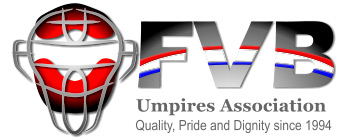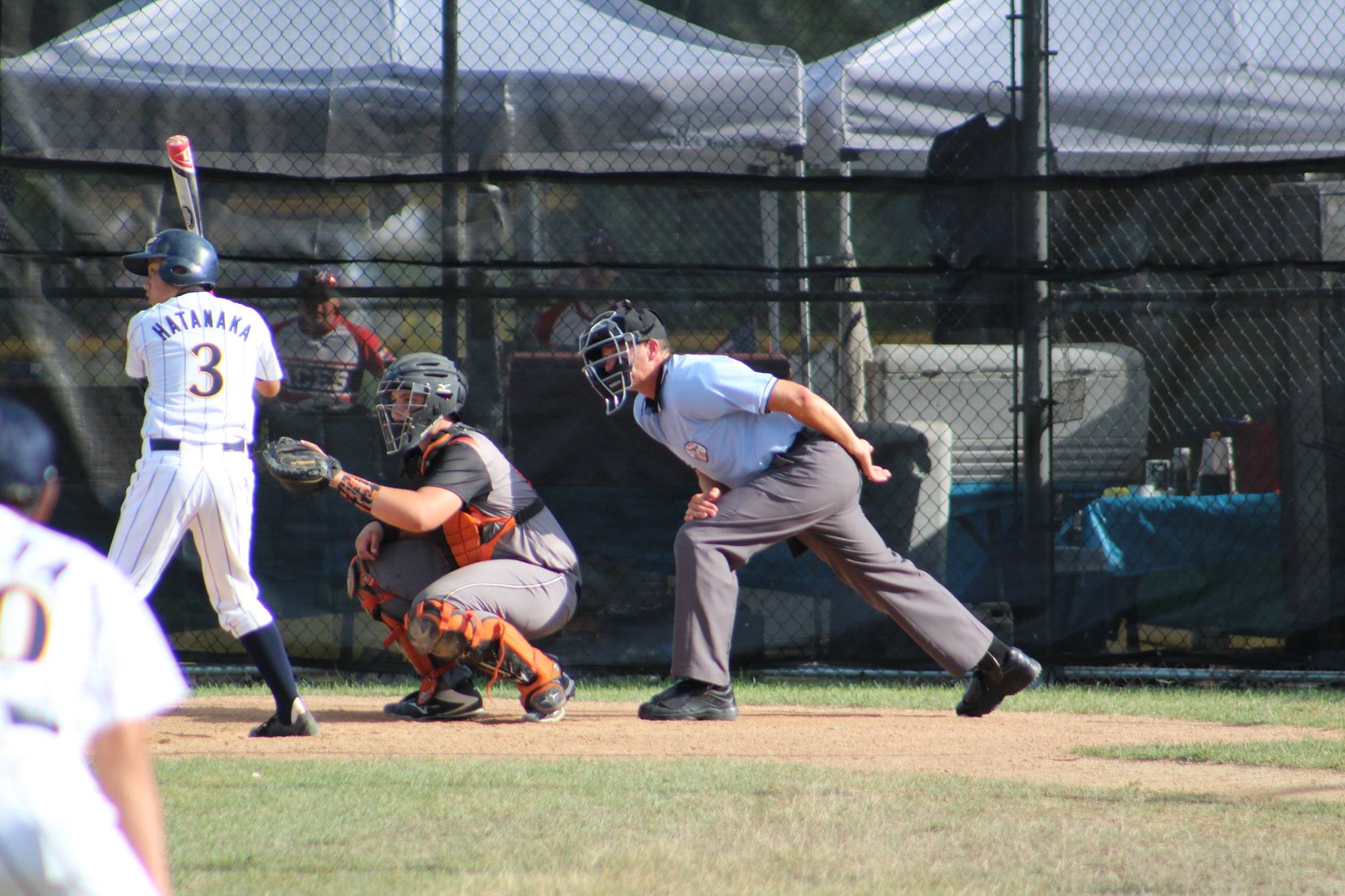Situations
- Handling situations is what makes the difference between an average umpire and a very good one. How we as umpires intercede to defuse possible blow-ups, arguments, and manage a game determine our ability as officials as much as calling safes and outs.
- Recognize danger signs- Watch for the “hard slide” or “hard tags”, and be prepared to step in the middle. This also applies to the plate umpire after a hit batsman. Grab your plate brush and jump out as if to dust the plate, but get in between the hitter and pitcher.
- When pitcher’s start head-hunting, HANDLE IT IMMEDIATELY! Take control of this immediately. When in doubt, issue warnings. If a pitcher throws at batter, and you know with no doubt he did, toss him right now If you issue warnings, be sure to file an incident report.
- When a head coach wants to “discuss” a call or play, LET HIM have his say, before you say anything. And wait for him to come to you. Do not go to meet him. This gives you time to get your thoughts together, and allows you time to cool down. When he starts repeating himself, let him know the discussion is over. Then you have to stop talking as well. If he gives you a parting shot, so what! As long as its not personal, LET HIM GO! DO NOT FOLLOW HIM!
- Always maintain your focus and composure
- Some problem-management tools. Taking the line-up card out of your pocket, and going to a coach is a great tool. Giving him the opportunity to solve an issue allows him to be the one handling the discipline instead of you. If he refuses, or tells you to handle it, then next time one of those step out of line, remove them from the game immediately. This way you have sent a statement to him, you mean business. Use catcher as a messenger.
- Do not bait players or coaches. Avoid using sarcasm, mentioning a team or player’s stats, won/loss record, or team’s standings in league/conference. Never allow yourself to be baited, worse phrase an umpire can ever use, “One more word and you’re gone!”. Look like the aggressor. Learn what deserves a response, and what to leave alone.
- DEFUSE, DEFUSE, DEFUSE. Do not say anything to a player or coach (manager) that would get him ejected if he said it to you. Don’t miss ejections. Don’t umpire scared or timid, if trouble arises, HANDLE IT. Do not bump into the coach or player when ejecting them. Step away, turn to the opposite foul line, and give them the heave-ho. “You’re done!”, “Get out of here!” are acceptable. “Hit the showers!”, and Get the #@*$ out of here!” are not acceptable under any terms. Avoid physical contact with players and coaches, especially during an argument. If you are bumped or poked etc., no matter how slight, you should immediately tell the offender, “That’s contact!”, or “That’s a bump!” and eject. Never allow your partner to be double-teamed. If your partner is involved in an argument, keep all others away from them. You stay out of it too. Just stay close enough where you can hear what is being said in case needed. Keep your voice down, and insist that others stay away. You can do this without yelling. Be sure to discuss how you will handle these types of situations in your pre-game.
- Fill out ejection reports immediately. If at all possible, fill out reports before you leave the game site. After changing, either in locker room or at your car, complete the report while everything that was said and what occurred is still fresh in your mind. Be factual in your report, do not editorialize. Do not give your opinion, only state the facts. Do not leave out anything, not matter how trivial you may feel it is, the coach (manger) may include that in his report. Remember during an argument, the less you say, the less likely you can be misquoted. But be sure to include everything you say before and after the ejection in your report. Remember, you do not have to have an ejection to file a report. Any incident that needs to be brought to someone’s attention (principal, athletic director, IHSA) file the report and let them handle it from there. DO NOT EVER FORGET TO FILE REPORTS- Not only is this unforgivable and irresponsible on your part, it sets up the next crew that has to handle these teams for problems. The IHSA and schools can not hand out disciplines/suspensions without your reports. It can also create a problem for other umpires who follow you with those schools. These reports can also cover your butt in case any legal action occurs later.
See the accompanying presentation and printable document.

